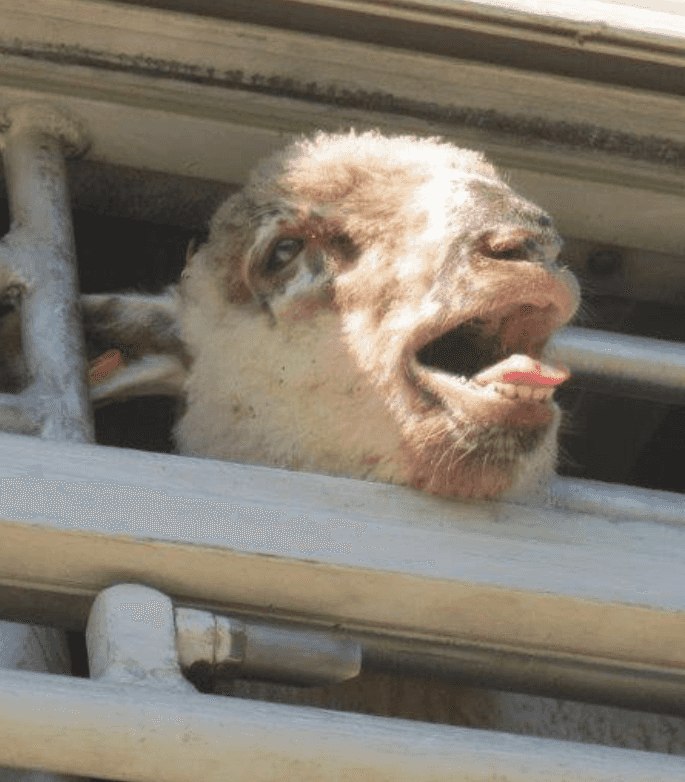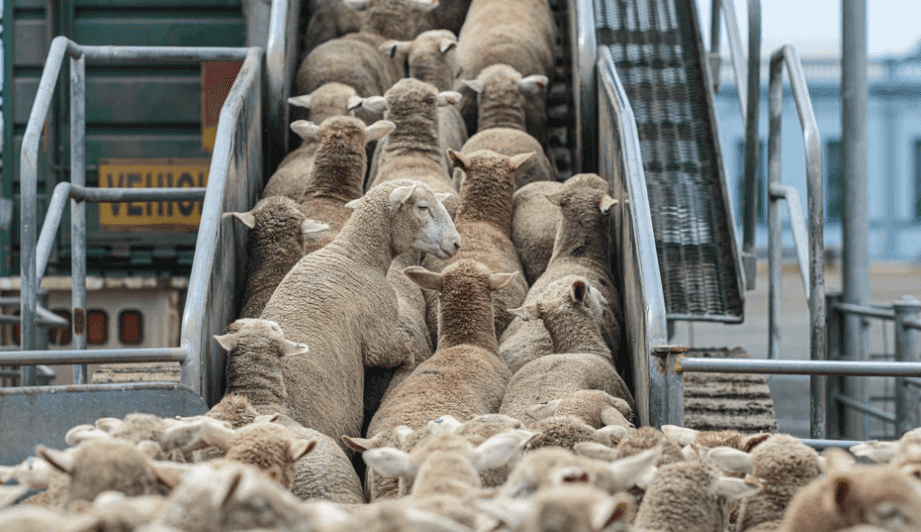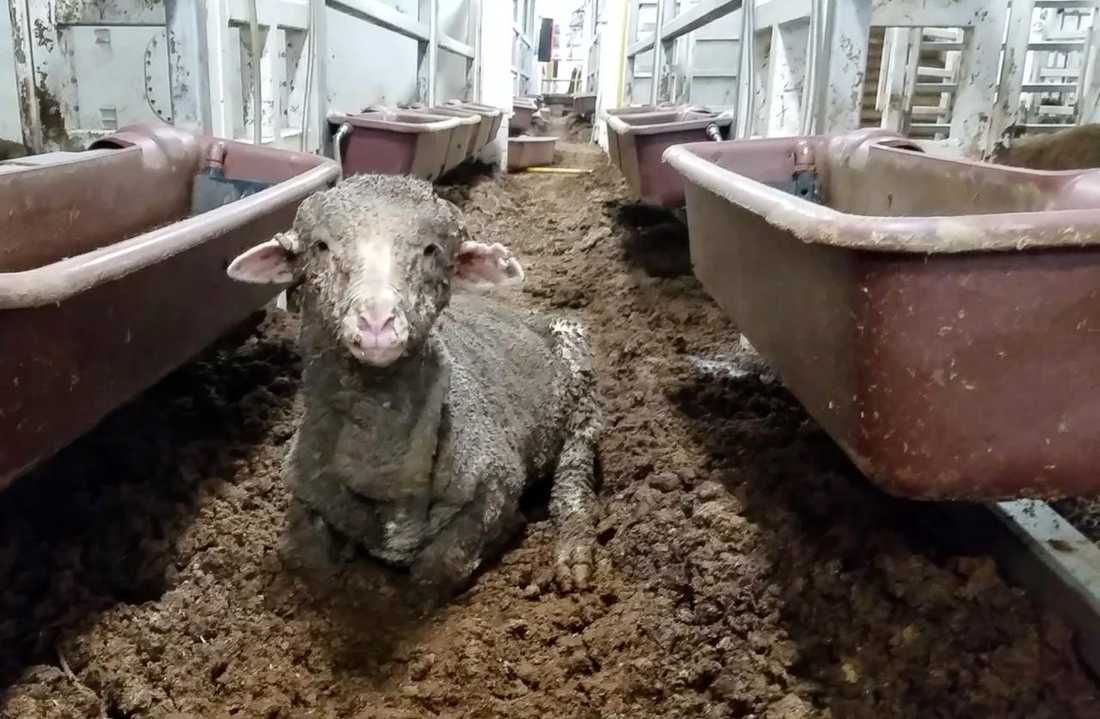South Africa exports thousands of live animals by sea each year, mainly cattle to Mauritius and sheep to the Middle East. Last year 52 animal welfare organisations urged government to ban this cruel trade. Instead, they’ve proposed new regulations in an attempt to legitimise and perpetuate this harmful practice, falsely misleading the public that the suffering of these animals can be controlled by a set of rules. But we know that live export is inherently inhumane, and the suffering which these animals endure cannot be eliminated by regulations. For this reason, many countries have already banned live exports - Luxembourg, New Zealand, Brazil, Germany, the United Kingdom, and Australia . To uphold its reputation as an ethical trading partner, South Africa must do the same. It's time to end this cruelty for good.
Stop Live Export South Africa is calling all South Africans to oppose the new Live Export Regulations published by government for public comment, and to demand a total ban on this cruel and unnecessary practice. This is a critical opportunity for us to use our voices to make real change for these sentient beings. If South Africans fail to make their voices heard, then the regulations will be passed and our opportunity to ban this barbaric trade will be lost.

Animal Welfare Concerns
Live animal export by sea is fundamentally inhumane. The very nature of the practice ensures that suffering is an inevitable consequence. Once animals are loaded onto vessels, they are subjected to prolonged journeys marked by severe stress, motion sickness, physical injury, dehydration, and the constant threat of death. The environment on board is often horrific—animals are confined in overcrowded conditions with limited ventilation, standing in their own waste and exposed to dangerously high levels of ammonia.
Even before reaching the ship, many animals are transported over long distances while unfit to travel, enduring additional trauma. Once at sea, there is no independent oversight to ensure compliance with welfare standards. With only government-appointed monitors - who are not impartial - on board, any regulations in place become effectively unenforceable. Tragically, the suffering doesn't end when the journey does. In many of the destination countries, animals are subjected to brutal slaughter practices, often without stunning or in unregulated backyard operations, where South African welfare laws no longer apply.
Lack of Accountability and Oversight
The current system lacks credible oversight. By appointing its own monitors, the Department of Agriculture introduces a clear conflict of interest that undermines the credibility of any animal welfare claims. Once animals leave South African waters, they are beyond the reach of our legal protections. This is particularly concerning given that many importing countries—such as Kuwait, Saudi Arabia, the UAE, and Mauritius—have animal welfare standards that fall well below those of South Africa. With no enforceable safeguards in place, animals are left completely vulnerable.
Public Health and Biosecurity Risks
Live export by sea also poses serious risks to public health. The mass movement of animals across borders significantly heightens the risk of zoonotic disease transmission. High-stress conditions, close confinement, and poor sanitation on board create an ideal breeding ground for outbreaks. These risks are not just theoretical—global health authorities have repeatedly warned that such practices increase the likelihood of diseases that can spread from animals to humans, with potentially devastating consequences.
Moral and Ethical Implications
The live export trade represents a moral failure. It prioritises profit over the wellbeing of sentient beings, turning a blind eye to their suffering for the sake of economic gain. As other countries—such as New Zealand, Brazil, Germany, the UK, and Australia—have already demonstrated, it is both possible and necessary to phase out or completely ban this cruel practice. These nations are setting a clear moral and scientific precedent that South Africa has every reason to follow.


Flawed Economic Justifications
Despite claims that live export supports small-scale or emerging farmers, the reality is starkly different. The vast majority of animals exported are owned by large, commercial farming operations. The narrative that the trade boosts rural development or spreads economic benefit is misleading. Moreover, South Africa’s continued participation in live animal export comes at a reputational cost, undermining the country’s credibility on animal welfare and ethical farming practices.
Regulatory Limitations
At its core, live animal export by sea is not a practice that can be fixed through regulation. No matter how stringent the rules, the systemic cruelty inherent in the trade cannot be eliminated. Attempts to regulate the process serve only to legitimize what is fundamentally an unjust and unnecessary industry. Rather than trying to reform the irredeemable, South Africa must move toward a complete and permanent ban.
To better understand what these animals endure aboard ships at sea, you can watch this video.
[Warning: not for sensitive viewers]
In the Media
About "Stop Live Export SA" (SLESA)
Established in February 2024, Stop Live Export SA (SLESA) is a voluntary association of South Africans united in opposition to live animal export by sea. With the support of 50 social justice and animal welfare organisations and a growing base of individual members, SLESA is committed to public education, lobbying, and campaigning to end the suffering inflicted on animals through the live export trade.
To join the movement and stay informed:
• Follow us on Facebook and Instagram
• Subscribe to our newsletter
• Donate to support our mission
About DearSA – Where Data Meets Democracy
DearSA is South Africa’s leading public participation platform, empowering citizens to have a direct say in government decisions that impact their lives. We bridge the gap between residents and policymakers by ensuring that public input is collected, analyzed, and presented effectively to decision-makers.
DearSA, is where data meets democracy, ensures that public participation directly influences policy decisions. By completing this form, your comments will be sent to Parliament for consideration.
How Can You Help?
Share this campaign link with your neighbours, friends, family, and colleagues so they too can submit their comment to Parliament. Let’s stand together and be heard—a stronger Constitution starts with you!
Contribute to democracy
Please consider supporting our platform and help reach more participants.
A small amount creates a huge impact. DearSA® is a registered South African non-profit organisation and, like all non-profits, does not qualify for relief funding from government. Please assist where you can.
.png)
Share
Comments
No comments
Have your say - participate
Total participants: -